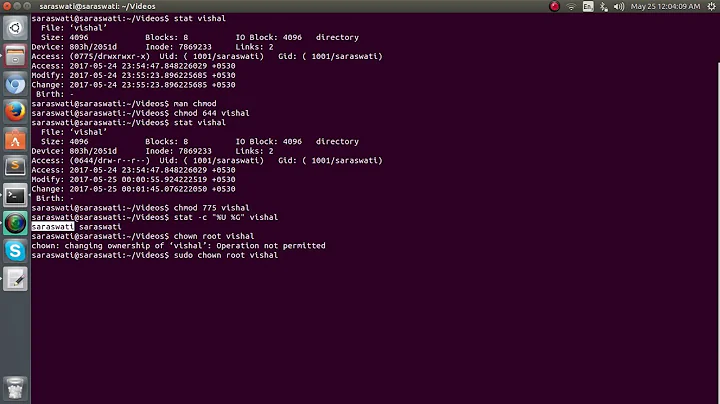sudo chmod -R 777 /
Solution 1
Take a look at Apple's Disk Utility's Repair Disk Permissions feature:
http://support.apple.com/kb/HT1452?viewlocale=en_US
Solution 2
From http://support.apple.com/kb/HT2963:
Using the Repair Privileges Utility
Most users of Mac OS X have not intentionally modified privileges and simply need a utility to reset system privileges to their correct default values. If you have Mac OS X 10.2 and later, this utility is included in the operating system. If you have Mac OS X 10.1 you can download it. For versions 10.0 to 10.1.4, you must update to version 10.1.5 first.
For Mac OS X 10.2 or later, open Disk Utility (/Applications/Utilities/). Select your Mac OS X startup volume in the column on the left of the Disk Utility window, then click the First Aid tab. Click the Repair Disk Permissions button. You may see an erroneous message.
Solution 3
You're in luck:
It won't fix everything, but it will fix everything that's listed in the bill of materials file for an installed package.
Related videos on Youtube
Casey Flynn
American software engineer living in Taipei, Taiwan. 只是一個住在台北的工程師. Mostly speaks English and 中文. 11100100 10111101 10100000 11100101 10100101 10111101 https://cflynn.us
Updated on September 18, 2022Comments
-
Casey Flynn over 1 year
sudo chmod -R 777 /I did this. It was a mistake. Is there any way to undo it?
Basically it's messed up more things than I can list. I don't have time-machine enabled on my mac.
-
Casey Flynn almost 13 yearsSerious question man, is there any way to undo it.
-
joaquin almost 13 years777 permissions are almost never the answer to any permissions problem. It might get you past a hiccup, but it is seldom a good idea, even when restricted to a directory deep in your disk system. It is a catastrophe when applied to all files and directories under root, not least because it attempts to remove SUID bits from programs such as 'sudo' that need them. Don't do it again! (Many Unix users can regale you with a story of an analogous mistake; I won't bother you with mine, but the backups of the system saved the day, and it wasn't me who typed the command that achieved the
rm -fr /.) -
 Scott almost 13 yearsLet this be a lesson to everyone about why
Scott almost 13 yearsLet this be a lesson to everyone about whysudogoes on about "think before you type" the first time you use it. ;-) -
ott-- over 12 yearsDo a
ls -lR / >liston a healthy system (or ask someone else for a list). You could automate this process to re-set the permissions (if this Dirk Utility Repair won't work). -
 hwshadow almost 11 yearsTab Auto-complete saves lives ;3
hwshadow almost 11 yearsTab Auto-complete saves lives ;3
-
-
 kylex almost 13 yearsThis won't undo your changes, but it should fix most of the issues due to improper permission settings.
kylex almost 13 yearsThis won't undo your changes, but it should fix most of the issues due to improper permission settings. -
Casey Flynn almost 13 yearsWill this repair my 'sudo' program?
-
 kylex almost 13 years@Casey - What is the issue with sudo? sudo just allows you to run a command as root. ie. bypasses many security restrictions.
kylex almost 13 years@Casey - What is the issue with sudo? sudo just allows you to run a command as root. ie. bypasses many security restrictions. -
sehe almost 13 years@kylex: it probably refuses to work since /etc/suoers is worldwritable :) Good thinking
-
larsks almost 13 yearsSudo probably refuses to work because it needs the suit bit set and by recursively changing everything to mode 777 the OP has stripped the suid bit on sudo (and all other privileged programs). Without the suid bit set, sudo cannot gain elevated privileges and hence cannot grant you access other than that which you already have. Unless Disk Utility has an alternative mechanism for gaining elevated privileges, Casey will probably have to arrange to log in as root.
-
Keith Thompson over 12 years
chmod -R 644will make all directories non-searchable. It would be difficult to recover from that.
![Sudo Splash V7: Installation[Mac]](https://i.ytimg.com/vi/osMs-hiAL4M/hq720.jpg?sqp=-oaymwEcCNAFEJQDSFXyq4qpAw4IARUAAIhCGAFwAcABBg==&rs=AOn4CLDIEQOId84OA4hqy52ftDZDKCPGnA)



